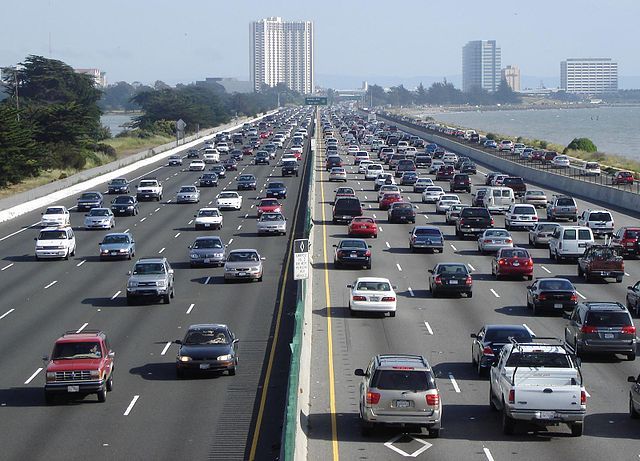The pro-car Trump Administration says that its proposed roll back of Obama-era fuel economy improvements for cars [PDF] is actually a safety measure.
Trump's plan announced this week would abandon an Obama administration push for 54.5 mile-per-gallon fleet averages by 2025 in favor of 43.7 miles per gallon, with the administration arguing that the higher standards are just too expensive for consumers and car manufacturers.
But the White House also offered an additional justification for letting cars be filthier and less efficient: The administration says that 1,000 lives will be saved because if cars are more efficient, people will drive more and there will be more crashes.
Trump is right about one thing: More miles driven means more crashes. But this administration has consistently supported driving over other methods of getting around, so it's hard to take seriously that the White House is shifting its environmental and regulatory policy to focus on protecting pedestrians and cyclists (indeed, if Trump really wanted to save lives, we could recommend, say, turning all the Interstates into two-lane country roads or capping automobile speeds at 35).
The administration is, in fact, parroting car and fuel industry talking points to ensure that more SUVs are purchased and more gas is burned. Experts have pointed out that Trump's moves will exacerbate global warming, for which transportation emissions are now the largest contributor, and raise oil consumption. And consumers will end up paying more in fuel costs over the lifetime of these less-efficient vehicles anyway.
So we're not buying the lemon that Trump's decision to gut Obama's fuel economy standards is a coup for non-drivers — mostly because the White House has consistently supported drivers. Here's what the administration has actually done instead of supporting real progress:
#1. It fails to fund already approved transit projects
Trump's Transportation Secretary Elaine Chao has stalled transit projects all over the country — even though Congress has continued appropriating the funds. The Trump administration is simply not awarding transit grants for new transit construction the way previous administrations have.
Voters in Indianapolis, Atlanta and Seattle have approved tax increases to support more robust transit systems to get people out of cars — saving lives and reducing greenhouse emissions. But Trump's DOT is standing in the way.
#2. It shifts walking and biking money to roads and rural projects
One of Obama's signature transportation programs was TIGER, a small grant program — around $500 million a year — that allowed cities get federal money for projects that support walking and biking, as well as for transit. Projects such as Indianapolis's Cultural Trail and complete streets projects in Fort Myers, Fla., were funded in that way.
These projects not only supported better safety, they were investments that made cities more attractive places to live. And living in cities offers people the chance to drive less. Under Trump, the program's name has been changed to INFRA and it mostly goes to support highways and rural projects that only increase miles being driven.
#3. It doesn't even want to consider climate impacts
Obama wasn't just trying to push automakers to be greener. He also sought to require state DOTs and metropolitan planning organizations to measure their projects' impacts on the climate. The rule wouldn't have imposed any penalties, but forcing highway builders to account for their impacts on he climate was a step in the right direction — and would have exerted subtle pressure for less carbon-intensive modes, like transit, walking and biking.
The Trump administration revoked the rule in May.





